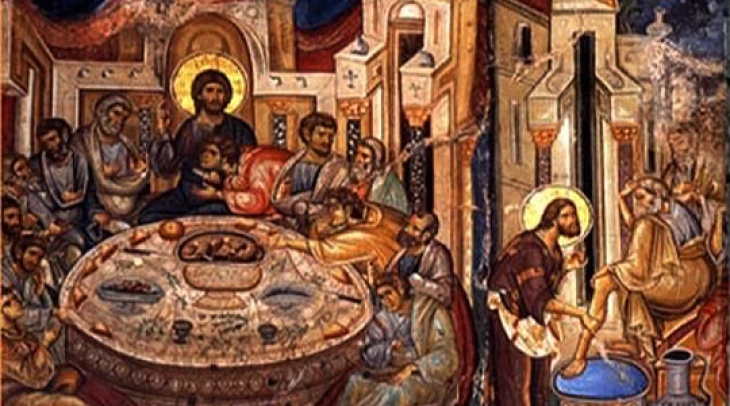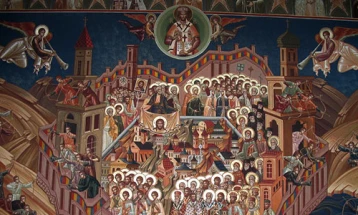Religious calendars
- Macedonian Orthodox Church Calendar; The Holy Martyr Tryphon

14 February 2025 (MIA)
Macedonian Orthodox Church Calendar
The Holy Martyr Tryphon
Born in the village of Lampsacus in Phrygia of poor parents, he kept geese as a child. He also had from childhood great grace from God, healing both people and animals and driving out evil spirits. At that time the Emperor Gordian (238-44) came to the throne in Rome. He had a mad daughter, the source of great distress to her father. Doctors could do nothing to help her. But the evil spirit in the girl broke silence and said that no one but Tryphon could cast it out. After many other Tryphons in the Empire had failed, this young Tryphon was sent for, by the providence of God. He was taken to Rome, where he healed the Emperor’s daughter. The Emperor heaped gifts on him, which Tryphon gave away to the poor before returning home. This holy youth remained in his village, tending the geese and praying to God. When Decius, who was violently opposed to the Christian faith, became Emperor, Tryphon was interrogated and cruelly tortured for Christ. But he endured all his sufferings with great joy, saying: `Oh, when shall I become worthy, through fire and torture, to make an end for the Name of Jesus Christ, my Lord and God?’ No torture was able to harm him, and the torturers finally condemned him to be beheaded. At the moment of his death, Tryphon commended his soul to his Creator, in the year 250.
Catholic Calendar
St. Valentine
Valentine was a holy priest in Rome, who, with St. Marius and his family, assisted the martyrs in the persecution under Claudius II. He was apprehended, and sent by the emperor to the prefect of Rome, who, on finding all his promises to make him renounce his faith in effectual, commended him to be beaten with clubs, and afterwards, to be beheaded, which was executed on February 14, about the year 270. Pope Julius I is said to have built a church near Ponte Mole to he memory, which for a long time gave name to the gate now called Porta del Popolo, formerly, Porta Valetini. The greatest part of his relics is now in the church of St. Praxedes. His name is celebrated as that of an illustrious martyr in the sacramentary of St. Gregory, the Roman Missal of Thomasius, in the calendar of F. Fronto and that of Allatius, in Bede, Usuard, Ado, Notker and all other martyrologies on this day. To abolish the heathens lewd superstitious custom of boys drawing the names of girls, in honour of their goddess Februata Juno, on the fifteenth of this month, several zealous pastors substituted the names of saints in billets given on this day.







